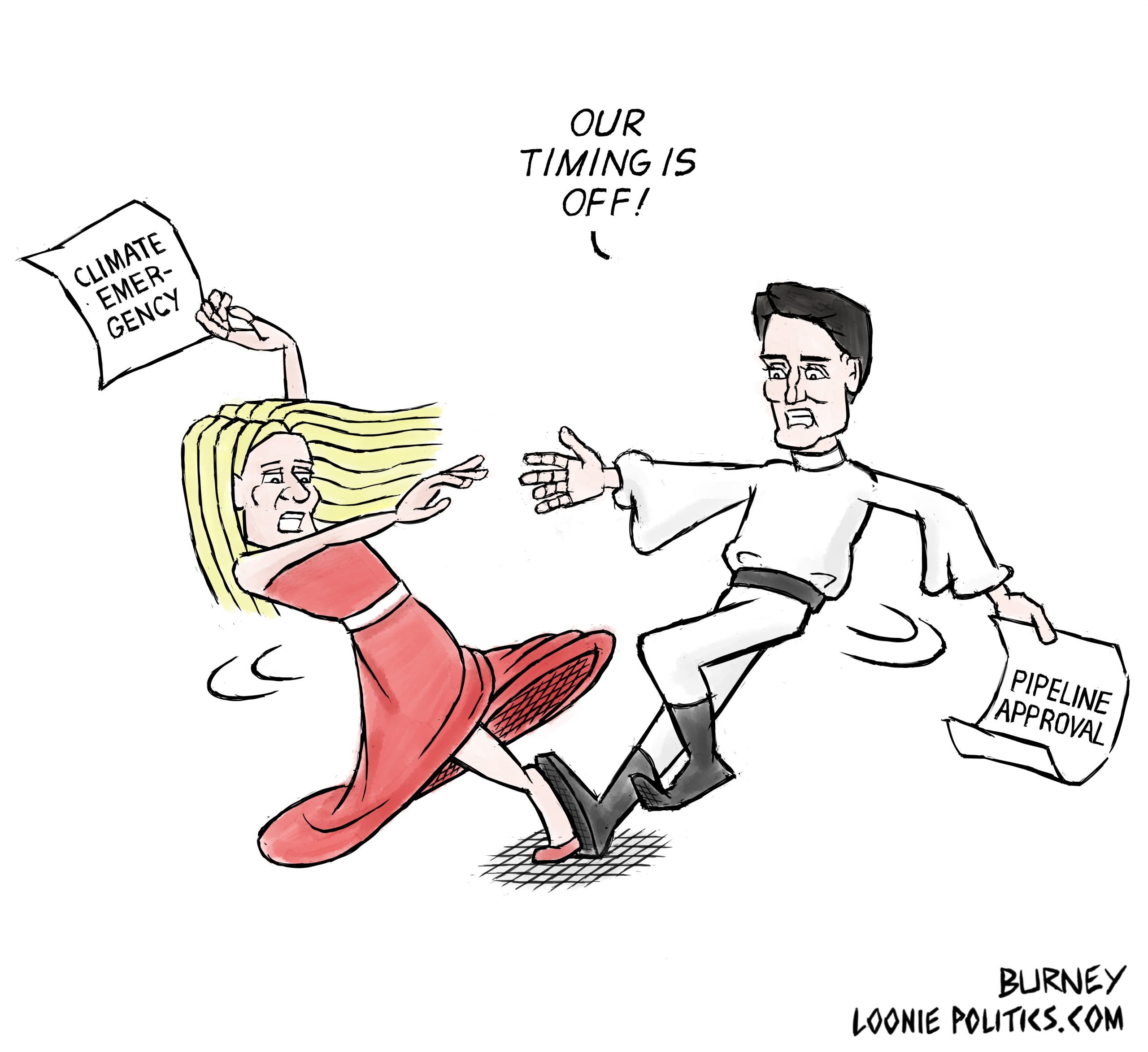Last week's announcement for the federal approval of the expansion of the Trans Mountain pipeline sets the stage for the 2019 election campaign. What with the ongoing carbon tax dispute between the Liberals and its conservative opponents, this election is shaping up to be one fought primarily on the dual planks of energy and the environment.
That's not to say that the 2019 election will be a single issue election. No election ever is. Though some are more focused on a particular issue than others. Think reciprocity in 1891 and 1911. Or conscription in 1917 and 1944. And of course, the return of Canadian anxiety over the trade relationship between Canada and the United States in 1988.
For a time, it appeared that immigration concerns and the fervour caused by irregular border crossings would endure in the minds of the electorate. But as of late, the issue has lost much of its political potency.
With the release of Dr. Eric Hoskins report, advocating for a universal pharmacare plan, it is certainly possible that the issue of drug coverage becomes a major point of contention.
Nonetheless, the ongoing debate over pipeline expansion and taxing carbon emissions has not only proven the most salient electoral topic, but also the most impassioned one.
As Prime Minister, Justin Trudeau has risked his political futures on balancing the interests of both the environment and the energy sectors, in the search of pleasing the median Canadian voter.
Attempting to juggle disparate interests, all to maintain the support of the mushy middle, has often been a tried and true method to political success.
Mackenzie King, Canada's longest serving Prime Minister, was most adept at this sort of balancing act. When World War II broke out, significant pressure from much of English Canada was levied on King to invoke conscription. In contrast, a majority of Quebeckers were vehemently opposed to any such draft.
At first, King stalled by calling for a national plebiscite to release the government from its earlier promise to never compulsory enlist. Countless other delaying tactics were also utilized by the wily Prime Minister to not split his caucus or his party's broad coalition of support; all while continuing to provide significant resources and volunteer troops to the Allied war efforts.
In 1944, he finally succumbed to the pressure and invoked a limited form conscription. By the 1945 election, the Liberals did indeed lose some western seats as a result of King's delays. And certainly there were many Quebecker's who were outraged at King's decision to conscript at all. Nonetheless, his governing coalition held solid in 1945. And when King finally chose to retire in 1948, he left the country, and the Liberal Party, more intact than any leader before or since.
King may have been "the world's champion fence sitter" as one official British report described him. But his fence sitting also allowed him unprecedented electoral success, all while maintaining national unity and making impressive contributions to help defeat Britain's enemies.
Stephen Harper has often been compared to Mackenzie King, and in some ways, the comparison is apt. Both men were fiercely partisan. They also both opted for incremental policy changes while in office, instead of pursuing grandiose nation-building schemes.
However, Harper was far too narrow-minded and vindictive to maintain the allegiance of centrist voters. Something that King did so skilfully, and for so long.
Instead, Harper's one-sided approach of championing pipeline construction, all while vilifying the environmental community, proved hopelessly inadequate. After all, not one of the four major pipelines approved during his tenure were in operation, let alone construction, by the time of his political defeat. And any Conservative action on addressing climate change was limited at best. The combination of these two failures helped undermine his very Prime Ministership.
Harper should have recalled another former Prime Minister, Lester Pearson, and his description of Mackenzie King before he chose such a route:
"(King was) aware that his posture was often neither heroic nor dramatic. Nailing your colours to both sides of a fence seldom is; but it may be better than nailing your colours to one side if in so doing, you bring down the fence."
It is evident that Justin Trudeau has chosen a more even approach than Harper ever did in balancing the interests of both energy and the environment. With his concessions to both sectors, and their constituencies of support, Trudeau is echoing the approach taken instead by King.
However, it remains to be seen whether this will prove the key to his re-election, or to his defeat. Unfortunately for Trudeau, the middle ground doesn't appear to be as solid as it was in King's day.
Photo Credit: Jeff Burney, Loonie Politics






